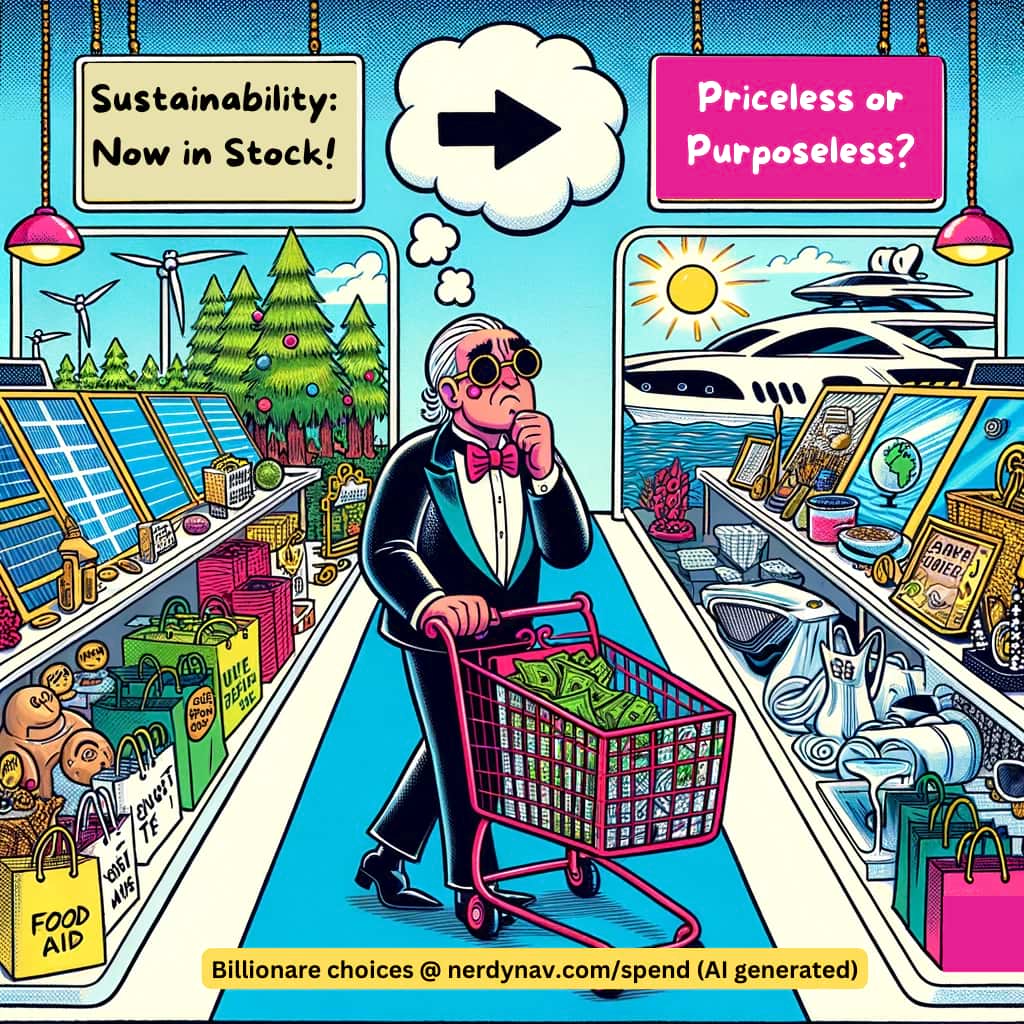Spend Billionaire Money 💸 to Save the Planet 🌎 Or Not 💅

Play around to see how a billion dollars seem big for luxuries, but tiny against the world's massive needs.
Got questions like "net worth vs liquid cash" or "why the spotlight on billionaires?" Please check FAQ.
Note: Tool uses data from various NGOs; doesn’t imply endorsement. Please research before donating.
And still have enough money left to
FAQ
Welcome to the realm of "But what about...?" questions! I wanted to show wealth in different contexts to highlight how a small redistribution can be transformative. Whether you agree or disagree, I invite you to explore this with an open mind.
Before we get to the FAQs, some context:The richest 1% gained almost two-thirds of $42 trillion in new wealth since 2020. On the tax front, the wealthiest 400 U.S. families paid a rate of 8.2%. The average American? They paid a rate of 13%.
Oxfam Report| White House Study on Tax Rates| Oxfam on Tax Fairness
WEF on global inequality| Covid: Govt Health Spending Dropped but 95% Countries Lowered Taxes on Rich
Now let's dive into the limitations and nuances of this tool...
1. Isn't net worth different from liquid cash?
Absolutely, you're correct. Net worth isn't the same as cash in hand. My tool uses net worth as a way to discuss wealth inequality, not to suggest that billionaires can instantly spend this money. I know that much of their wealth is in assets like stocks, properties, and more. While their wealth isn't all liquid, they can easily leverage it for loans or investments. In short, even if the money isn't all "cash in hand," the financial power it represents is very real. Want concrete details? This guy explained it much better.
2. Why spotlight billionaires when governments have more money?
The point is not to target billionaires, but to highlight the enormous scale of wealth they hold. Governments do have budgets, but they also have obligations like healthcare, education, and public safety. The tool aims to show the potential for change if even a fraction of this wealth were redirected to pressing global issues.
3. Money can't fix everything. Don't we need systemic changes?
You're absolutely right. Money alone won't solve deep-rooted issues. We need systemic changes for that. But, this question assumes a "false dilemma," suggesting we can only focus on one or the other. The tool aims to be a starting point for conversations about wealth inequality and its impact, not the end-all solution. Often money will play a key role in any systemic change we envision.
4. Many people in developed countries are in global 1% and shouldn't talk about wealth inequality.
This can be misleading, especially when used to minimize the staggering wealth of billionaires. Being in the global 1% and being a billionaire are vastly different in terms of wealth scale and impact. The collective wealth of the worlds super-rich is increased by $2.7 billion a day during COVID ( Oxfam), a rate not matched by the average global 1%-er.
5. Seen other tools like this?
I appreciate the work of other creators who have tackled this subject. My tool offers my personal take, and I am not here to compete but to add to the discourse. If you're interested, here are some other projects that also discuss wealth inequality, some more overtly than others: